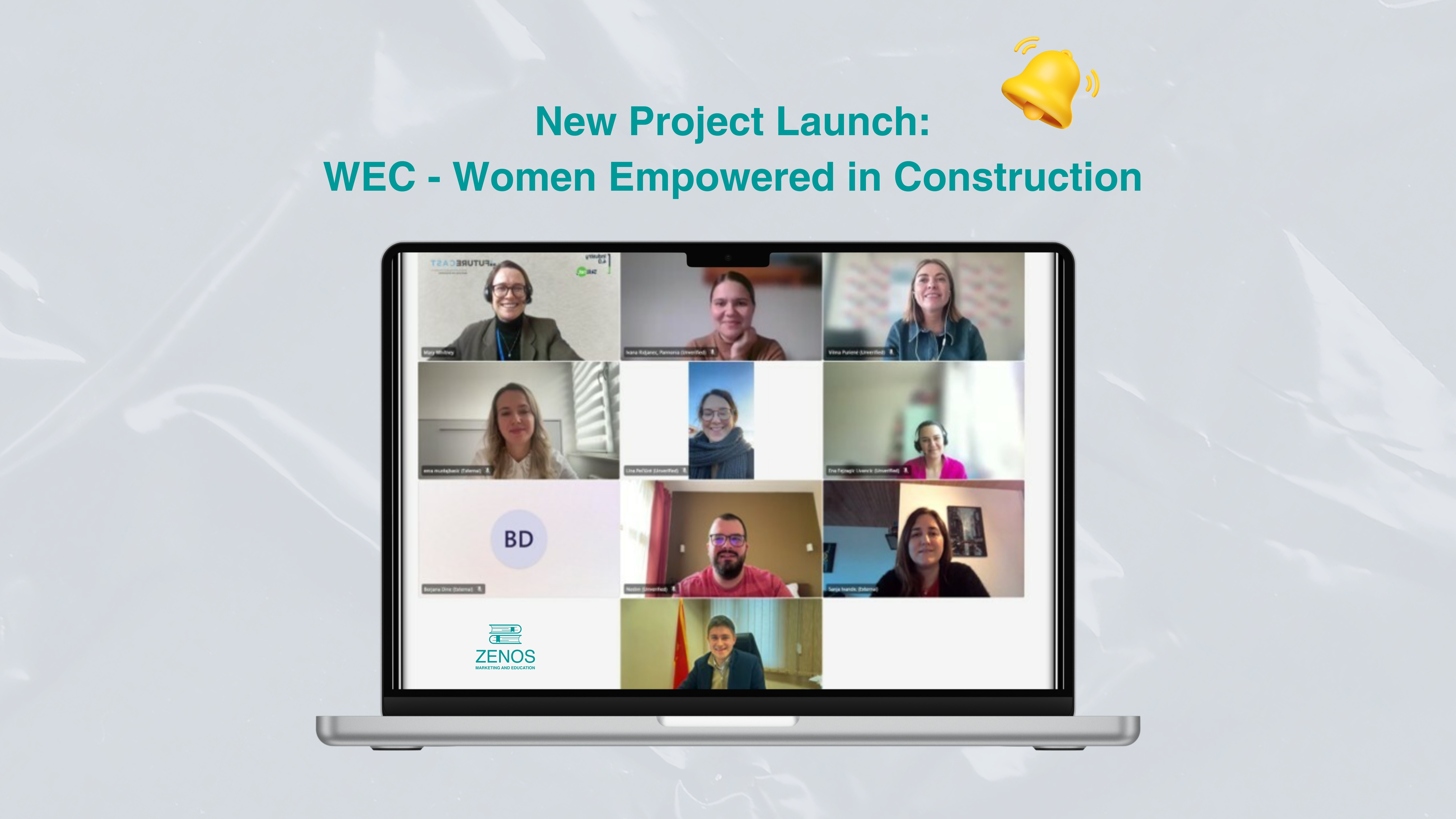Building Change: The Impact of the Women Empowered in Construction Project on the Western Balkans
Let’s face it – when you picture a construction site, you probably imagine a group of men in hard hats. And the numbers back this up. Across Europe, women make up just 9% of the construction workforce. In the Western Balkans, it’s even more lopsided – more than 92% of construction workers are men.
But here’s the thing: the construction industry is desperate for workers.
We’re Facing a Real Problem
Right now, the construction industry is facing a crisis. There simply aren’t enough workers to meet the demand. The COVID-19 pandemic made things worse, and with an ageing workforce and declining population, the problem isn’t going away anytime soon. In fact, labor shortages in construction are nearly three times higher than they were ten years ago.
At the same time, major projects like the EU Green Deal and National Recovery and Resilience Plans are creating even more demand for construction work, particularly in sustainable and green building. Experts estimate that the green transition could create up to 2.5 million new jobs by 2030. But, who’s going to fill those jobs?
Why Aren’t There More Women in Construction?
Construction has long been stereotyped as a “man’s job,” with many assuming that physical strength is a prerequisite for success in the field. In reality, women possess equal capability in building, designing, and managing projects, yet persistent stereotypes and biases deter many from exploring careers in construction.
For example, in the Western Balkans, female architects often start their own businesses but remain in the micro-entrepreneurial segment. Women in construction and geodesy face even bigger challenges, with fewer opportunities for career advancement and stronger prejudices in both the public and private sectors.
Women Empowered in Construction (WEC) Project
The Women Empowered in Construction (WEC) project is our response to a critical need, both for the industry and for society.
As part of the WEC project, our team is proud to take on a key dissemination role, ensuring that the project’s results and impact reach a wide audience.
We’re working across the Western Balkans and European Union to create vocational education and training programs that actually work for women. We’re not just saying, “women should apply for construction jobs” – we’re reimagining how people train for these careers and how the industry welcomes diverse talent.
The project brings together an impressive consortium of partners, including:
Future Cast, Outside Media&Knowledge, Spin, Vilnius Tech, Pannonia, Engineer Marko Radević Secondary School of Civil Engineering and Geodesy and CRCA.
This collaboration is crucial at a time when the construction industry faces significant labor shortages across EU Member States – nearly triple the level observed a decade ago. Through innovative Vocational Education and Training (VET) programs and a comprehensive approach to gender equality, the WEC project aims to address these challenges while creating new opportunities for women in construction.
Here’s why it’s so important:
1. It’s About Fairness: Women deserve the same opportunities as men. The construction industry shouldn’t be a boys’ club. By breaking down barriers and challenging stereotypes, the WEC project is helping to create a more equitable industry.
2. It’s About Solving the Labor Shortage: The construction industry needs workers, and women are a huge untapped resource. By empowering women to join the workforce, we’re helping address the labor shortage and keep the industry moving forward.
3. It’s About Building a Better Industry: Diversity isn’t just a buzzword – it’s a driver of innovation. When you bring more women into construction, you bring new perspectives, ideas, and ways of doing things. That’s good for business and good for the industry as a whole.
4. It’s About the Future: The construction industry is evolving, and so too must its workforce. The WEC project is helping to ensure that women have a seat at the table as the industry grows and changes.
Companies that embrace diversity consistently outperform those that don’t. It’s simple – different perspectives lead to better problem-solving and innovation. When your team includes people with varied experiences and viewpoints, you find better ways to approach projects and grow your business.
With construction companies needing to upskill or reskill about 25% of their workforce in the next five years, bringing more women into the field isn’t just the right thing to do – it’s the smart thing to do.
The construction industry literally builds our future – our homes, offices, schools, and hospitals. Shouldn’t everyone have the opportunity to contribute to that future?
It’s time to build a construction industry that works for everyone!
The WEC project is funded by the European Union and implemented by a consortium of partners across the Western Balkans and the EU.

